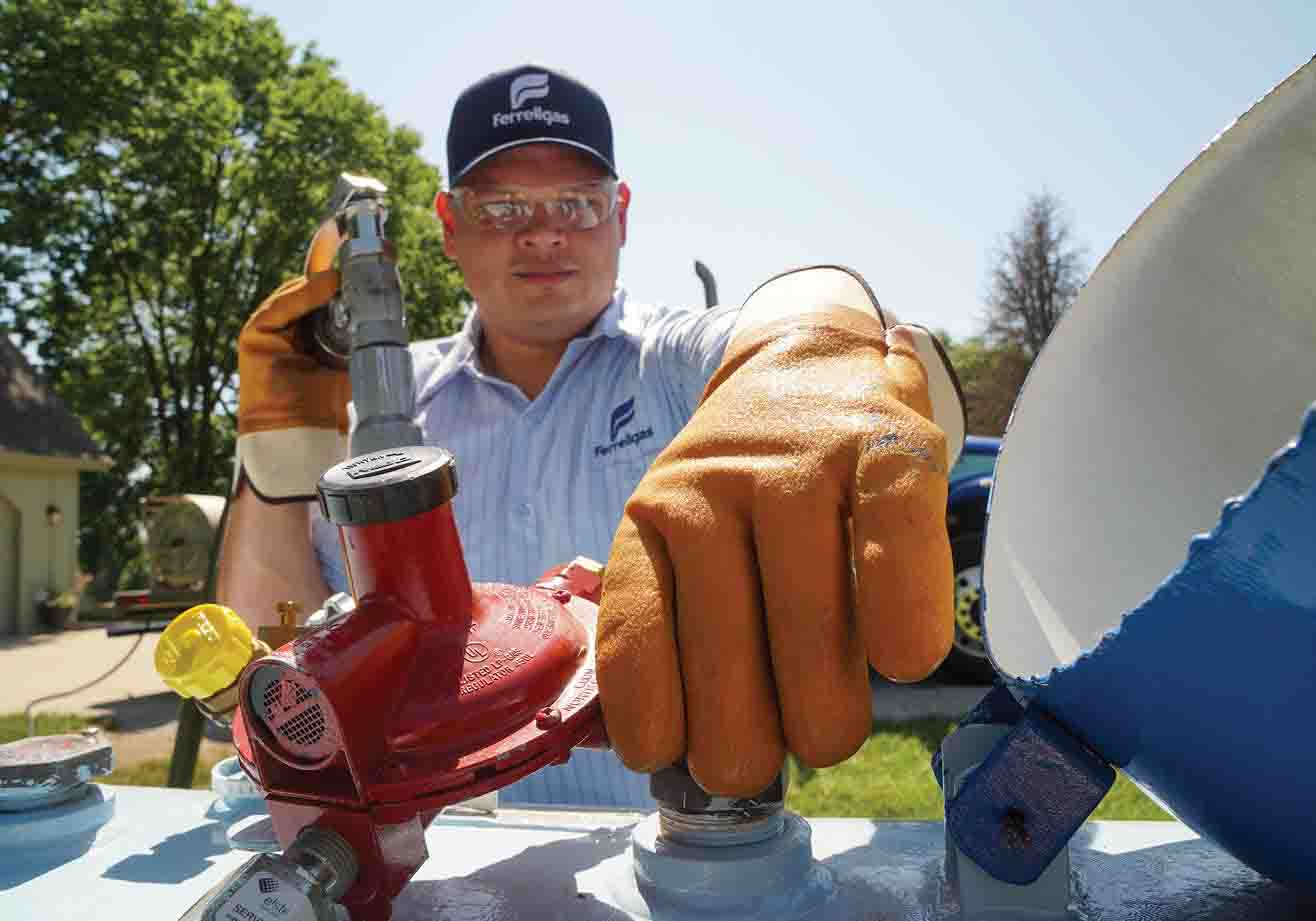How to Convert a Natural Gas Dryer to a Propane Dryer
Switching from a natural gas dryer to a propane dryer can be a practical solution for many households, especially for people who live in rural areas or places where natural gas is not readily available. Propane dryers also offer efficiency and reliability, making them an excellent choice for laundry needs. Even better, you probably don’t need to buy a replacement for your natural gas dryer.
While propane and natural gas cannot be used interchangeably, there’s a good chance that the gas dryer you already own could be converted to propane. Let’s walk you through the steps of converting a natural gas dryer to propane, the costs involved, and the benefits of making the switch.

Can Any Gas Dryer be Converted to Propane?
Most gas dryers can be converted to propane with a conversion kit. In fact, some even come with a conversion kit included. When in doubt, consult the manufacturer for a concrete answer.
Natural Gas to Propane Conversion Kit
Converting a natural gas dryer to propane with a liquid propane (LP) conversion kit is relatively easy. These kits come with a set of instructions and the necessary parts to get the job done. You can usually buy them online or at your local hardware store.
How to Hook Up a Natural Gas Dryer to Propane:
As we mentioned, the conversion kit you purchase will include step-by-step instructions, but we want to stress the importance of handling propane correctly. We strongly recommend bringing in a qualified installer to get the job done. Gas dryer conversion service availability and pricing may vary by region.

How to Tell if a Dryer Uses Propane or Natural Gas:
There are plenty of tutorials and forums online discussing how to check your dryer to see if it uses propane or natural gas, but your appliance manual will always be your best source for the most accurate information.
How Much Does it Cost to Convert a Gas Dryer to Propane?
On average, the price of propane conversion kits for gas dryers usually range from roughly $20 to $80. Prices vary based on the brand of the kit and the retailer you purchase from.
How Much Does it Cost to Run a Propane Clothes Dryer?
Every household uses propane at a different rate, but there is a formula you can use to calculate the cost of your propane usage. All you’ll need to know is the kilowatt (kWh) equivalent produced from a gallon of propane; each gallon of propane can produce up to 27 kWh of energy.
How Much Propane Does a Dryer Use?
The Propane Education & Research Council estimates that the average cost to run a propane dryer is roughly $40-$80/year. The cost in each household will differ, of course, with usage and local propane rates.

The Benefits of a Propane Dryer:
Propane dryers have a lot to offer, including the ability to use them in homes that that aren’t hooked up to natural gas lines, but these are the main benefits:
Lower utility costs.
Propane dryers are known for their energy efficiency. They use less energy than electric models, so using a propane dryer could lead to lower utility bills. Plus, you can power them with the same propane tank you use to heat your home.
Faster drying times.
Propane dryers generate higher heat output, resulting in faster drying times and less wear on your clothes.
Produces fewer greenhouse gas emissions.
From an environmental perspective, propane is a clean-burning fuel that produces fewer greenhouse gas emissions than many other energy sources, making it an eco-friendly option.
Stable energy costs.
Propane isn’t subject to the same fluctuations caused by market and infrastructure issues as electricity. This stability makes it easier for families to budget effectively.
Over time, the operational savings from using propane can offset the initial conversion costs, making it a cost-effective option for many households.
Sources
DoItYourself, Convert a Gas Clothes Dryer to Propane
GE Appliances, Quick Connect Fittings
GE Appliances, Gas Dryer — LP Conversion
Propane Education & Research Council, Residential Clothes Dryers
CATEGORIES
Archives
- Winter 2025
- Fall 2025
- Summer 2025
- Spring 2025
- Winter 2024
- Fall 2024
- Summer 2024
- Spring 2024
- Winter 2023
- Fall 2023
- Summer 2023
- Spring 2023
- Winter 2022
- Fall 2022
- Summer 2022
- Spring 2022
- Winter 2021
- Fall 2021
- Summer 2021
- Spring 2021
- Winter 2020
- Fall 2020
- Summer 2020
- Spring 2020
- Winter 2019
- Fall 2019
- Summer 2019
- Spring 2019
- Winter 2018
- Fall 2018
- Summer 2018
- Spring 2018
- Winter 2017
